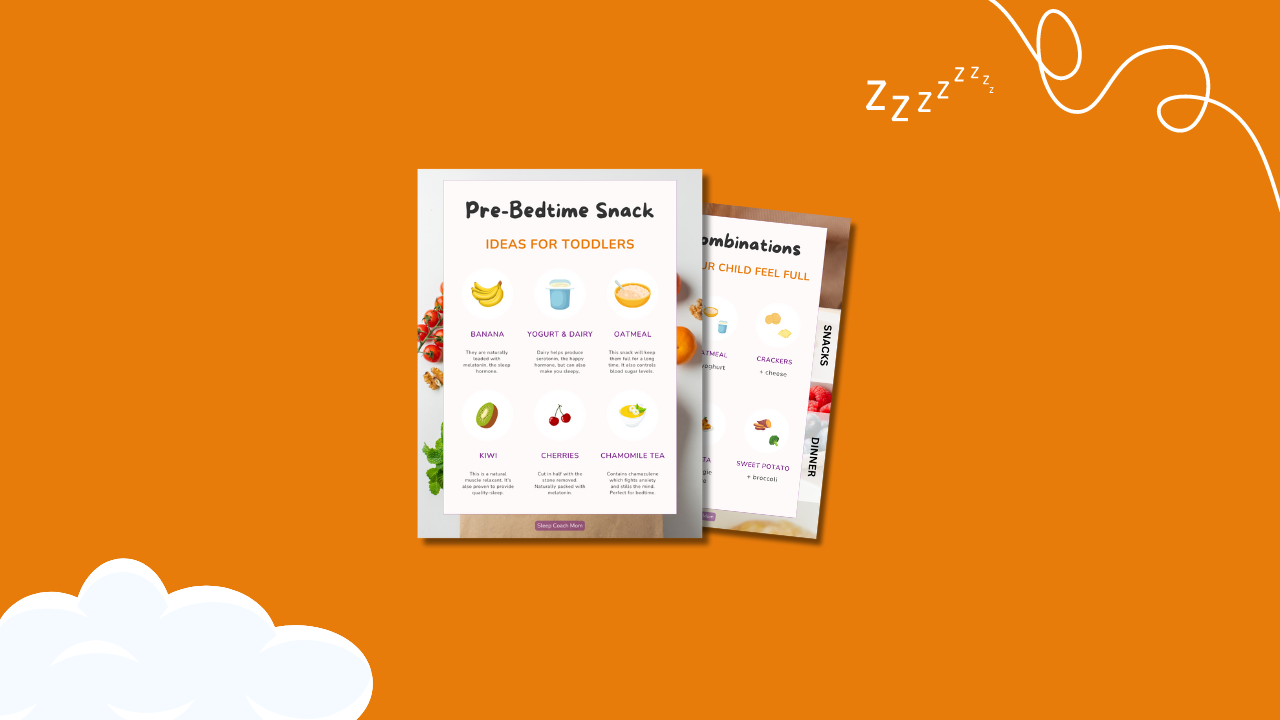
How Food & Nutrition Can Make or Break Your Child’s Sleep
Share
If you’ve tried everything when it comes to your baby or toddler’s sleep: a bedtime routine, white noise, sleep training, blacking out the bedroom, maybe even sleep coaching - it’s time to consider your child’s nutritional intake. Food and nutrition can really affect your child’s sleep more than you can imagine.
What is the link between nutrition and sleep for kids?
Proper nutrition CAN help with sleep.
There is a misconception, though, that your child needs to be completely stuffed before bed in order to sleep. This is not true! Also, toddlers - for example - are notoriously picky eaters, and almost all of them will sleep fine if they don't have a full dinner.
What about introducing solids or cereal to my infant in order to get them to sleep better?
PLEASE for the love of GOODNESS, do NOT PUT CEREAL IN YOUR CHILD’S MILK or start solids too early hoping to get longer sleep stretches!
Nutrition does play a part in sleeping through the night, but there are so may other factors that are equally important.
Stuffing your baby does not promise you’ll get a full night of sleep.
What CAN help?
- Making sure your baby gets a full bottle or breastfeeding sessions throughout the day.
- Proper timing for naps and bedtime (not being overly tired).
- Falling asleep independently at the start of the night.
- Proper sleep environment.
- Knowing EVERY BABY IS DIFFERENT and is ready to sleep through on their OWN TIMELINE.
The last point is the most important. It CAN BE NORMAL for babies to need to eat in the night. And their readiness to drop a feeding is completely variable based on their own individual needs.
Please do not think your 3 month old needs to be sleeping through without a feed just because your friend’s baby is doing it.
Focus on setting a solid sleep foundation for your child, and accept they will drop their feeding (or demonstrate signs of needing it dropped) when they’re ready.
What vitamin can promote sleep?
There are vitamins that do prove to be useful in aiding good quality sleep (but this usually only proves true if your child is deficient in these. PLEASE CONSULT WITH YOUR CHILD’S DOCTOR BEFORE GIVING YOUR CHILD A MULTIVITAMIN. Additionally, INFANTS SHOULD NOT BE GIVEN MULTIVITAMINS). Here are some nutrients and foods in which they are found:
Iron
Low iron can make it very hard to fall asleep as well as stay asleep. Some foods high in iron are - red meat, lentils, chicken liver, mussels, oysters, chicken, turkey, sardines, enriched cereals…
Magnesium
A lack of magnesium can cause more night wakings. Good sources of magnesium include - pumpkin seeds, spinach, edamame, peanut butter, dark chocolate, potatoes, avocado, yogurt, banana, broccoli…
Vitamin D
Low levels of Vitamin D causes sleep disruption as well. Get out into the sun and boost circadian rhythms + getting vitamin D! There are also enriched foods and milks.
B vitamins
Foods with high vitamin B content are - whole grains, meat, eggs, legumes, seeds and nuts, leafy greens, and citrus fruits… There are also wonderful children’s multivitamins on the market, but I recommend you try natural sources (like real food) first!
Should I give my child melatonin?
PLEASE DO NOT GIVE YOUR YOUNG CHILD MELATONIN unless specifically advised by a trusted physician. Oftentimes melatonin exacerbates sleep issues!
Instead, try to naturally produce melatonin by being in the daylight and outdoors, eating foods that are naturally high in melatonin (like blueberries), and sleeping in a blacked-out bedroom.
What foods affect children’s sleep?
I recommend you have your child eat foods that are naturally high in melatonin to improve sleep, and use specific food pairings to help them stay full and comfortable all night.
I’ve made some really cute guides with dinner, snack and food pairing ideas you can keep on your phone or print out. Download them for free here!
I hope this helps! If you need sleep advice or want to work with me, email me.
💜 Ellanee



